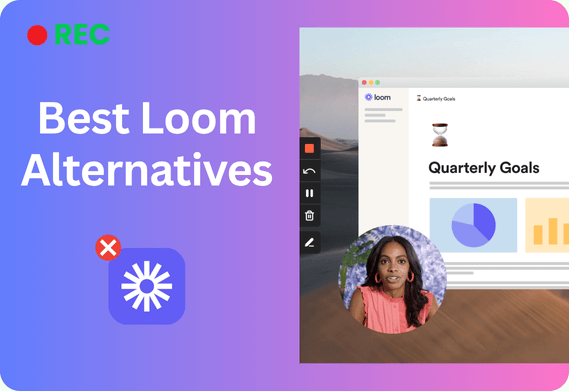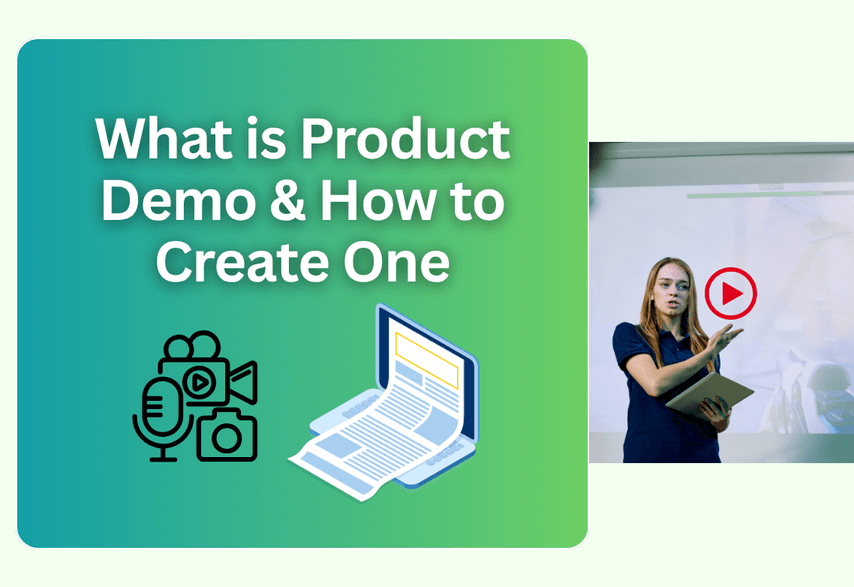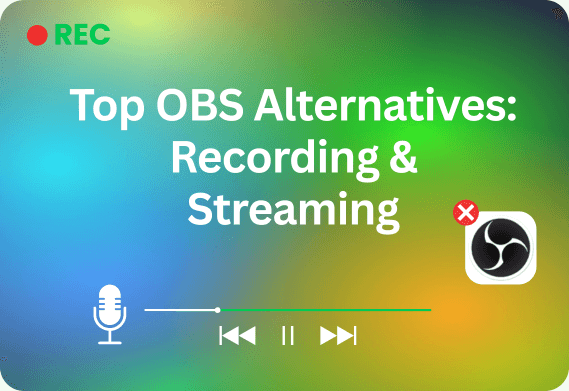Screen recording is a long-standing need with applications across numerous scenarios, including gaming, video tutorials, operational demonstrations, and event logging. With hybrid work increasingly becoming the norm, screen recording has also been adopted for asynchronous communication, and Loom is the pioneer in this new landscape. In October 2023, Loom was acquired by Atlassian for $975 million, further solidifying its position in the office communication sector. However, it seems that every product, as it matures, inevitably faces user criticism and can never satisfy everyone's needs. Consequently, people are always searching for alternatives to Loom.
If you are the one who needs a better alternative to Loom that matches more specific situations, read this post, then you will find out who competes with Loom, and you can make videos more cost-effectively.
Loom Overview
Loom is an indispensable leading platform that enables users to record, share, and store screen recordings, webcam videos, or both simultaneously. It has revolutionized remote & asynchronous communication by allowing professionals to create quick, engaging video messages instead of writing lengthy emails or scheduling live meetings.
Key Features
- Screen recording and video editing capabilities
- Instant video sharing via links
- Viewer analytics and engagement tracking
- Team workspace and organization features
- Video library management
- Custom branding options
- Integration with major productivity tools
Pros
- Quick and easy video creation process
- Seamless sharing capabilities
- Reduces the need for live meetings
- Excellent for async communication
- Built-in video editing tools
- Cloud storage for videos
- Supports team collaboration
Cons
- Free plan limited to 25 videos
- 5-minute recording limit on basic plan
- Storage limitations on lower tiers
- Some advanced features require a premium subscription
- Can be costly for large teams
- Requires a stable internet connection for optimal use
Loom Alternatives Quick Comparison
First, take a quick look at the comparison among Loom alternatives, which covers various needs when recording and editing videos.
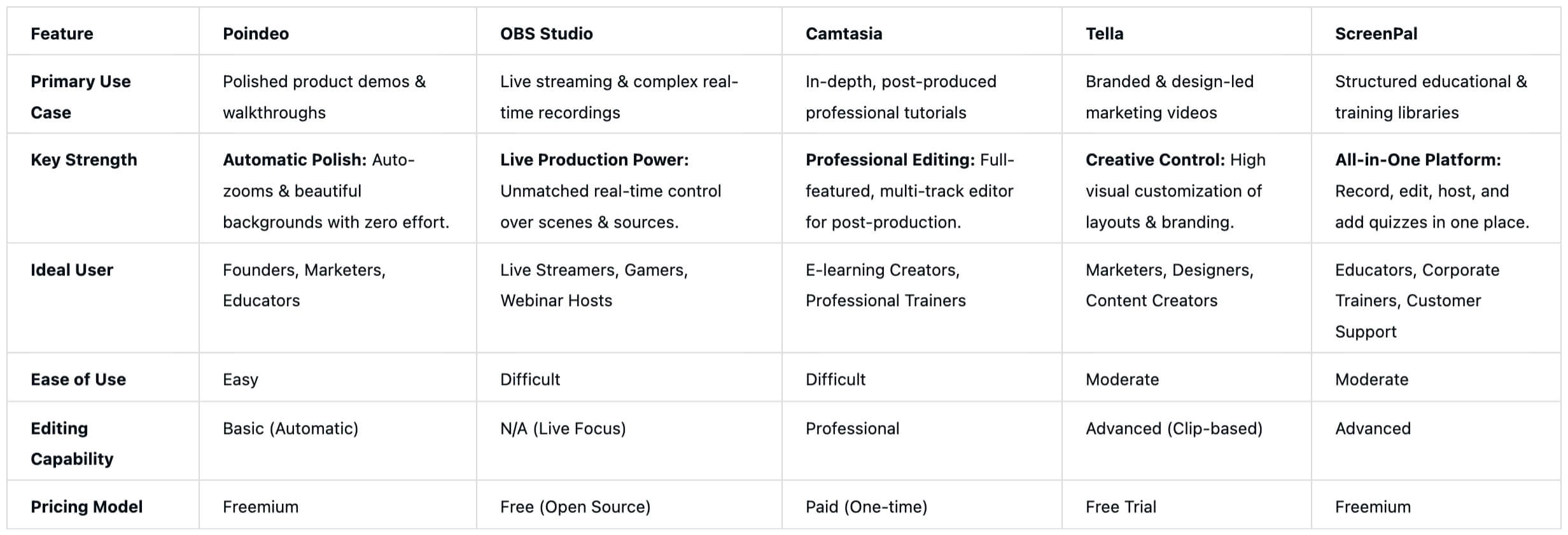
The Best Loom Alternatives
Next, you will get the best alternatives to Loom with more flexibility and advanced features without the associated premium costs, for growing teams and also individual starters.
1. Poindeo
For those who use Loom to create product demos and walkthrough videos, Poindeo is an excellent alternative that automatically enhances your recordings with dynamic zoom effects and beautiful backgrounds for a more polished, professional result.
Poindeo is a web-based solution that records videos with robust editing capabilities and multiple export options. Poindeo offers you record screen, camera, and audio simultaneously or separately. After recording, you can use built-in tools like applying zoom effects with one click, customizing a watermark, creating videos with images or PDFs, converting a video/PDF/image to GIF, etc.
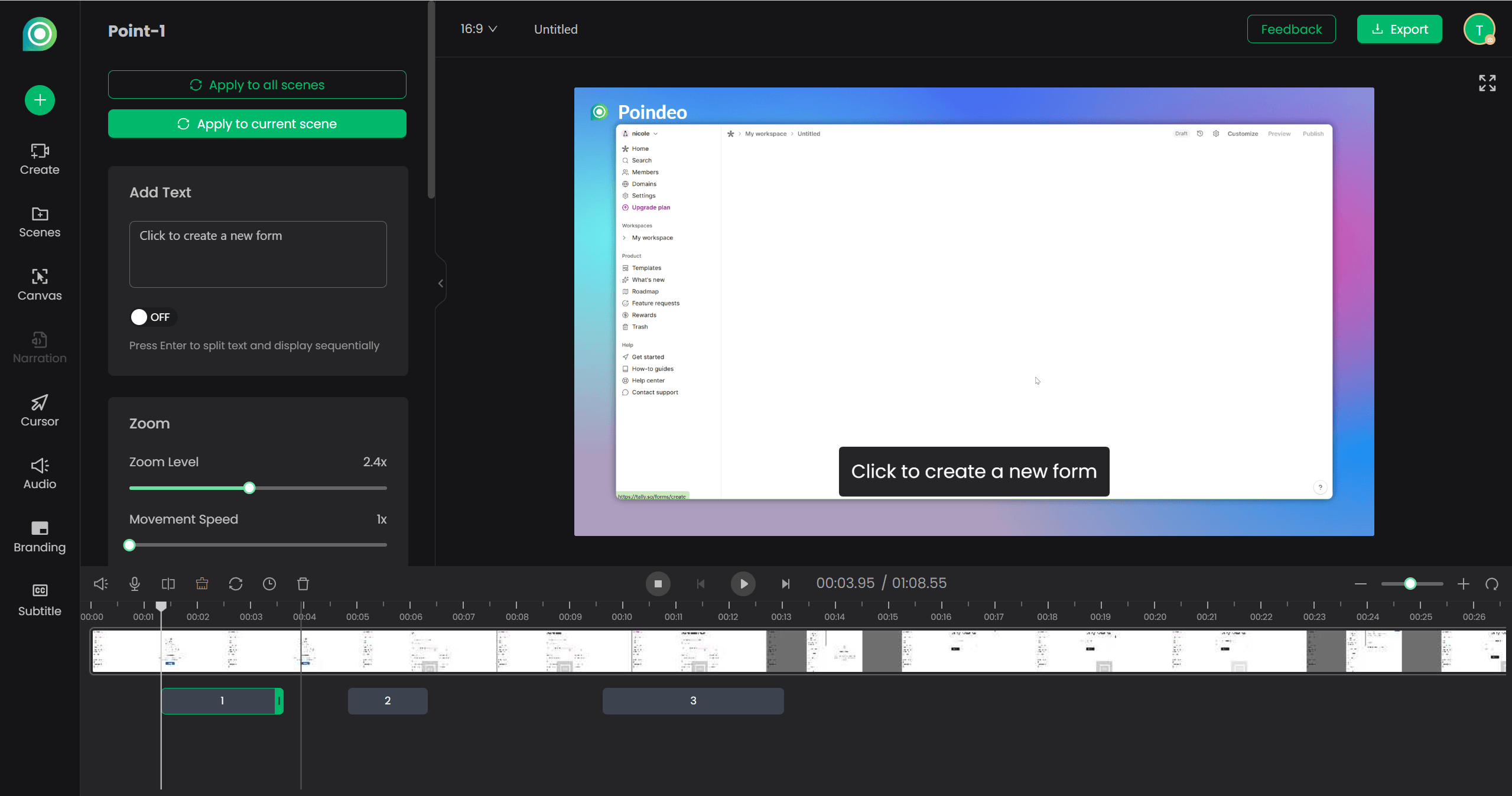
Key Features
- Multiple capture modes, including recording a window, a website, or the whole screen
- Featured editing suite with one-click zoom, trimming tools, audio addition, etc.
- High-quality support, you can get videos up to 4K resolution with 60fps
- Brand customization with your own logo or brand ground image
- Automatically recognizes speech in your videos and converts it into subtitles/captions.
- Various export formats, including MP4, GIF, PNG, JPEG, and WebP
Pros
- Flexible recording options
- Eye-catching editing features
- Rich input and output formats
- No learning curve
Cons
- Limited advanced editing features
- Only the web browser is supported
Pricing
- Free for most editing tools, like unlimited zoom and screen/webcam recording
- Pro has an early bird time-limited lifetime plan for only $69.99
Rating
- 4.0 out of 5, based on 3 reviews on Trustpilot
- 5.0 out of 5, based on 3 reviews on Product Hunt
Loom vs. Poindeo
Poindeo offers superior local recording quality and features editing capabilities, making it well-suited for easy demonstrations, tutorials, and video sharing, among other uses.
2. OBS
If you use Loom for any scenario requiring live interaction or complex screen compositions, then OBS Studio is the professional-grade alternative. It offers unparalleled real-time control, allowing you to compose scenes with multiple sources (like your screen, webcam, browser windows, and images) and switch between them seamlessly during a live stream or a single-take recording.
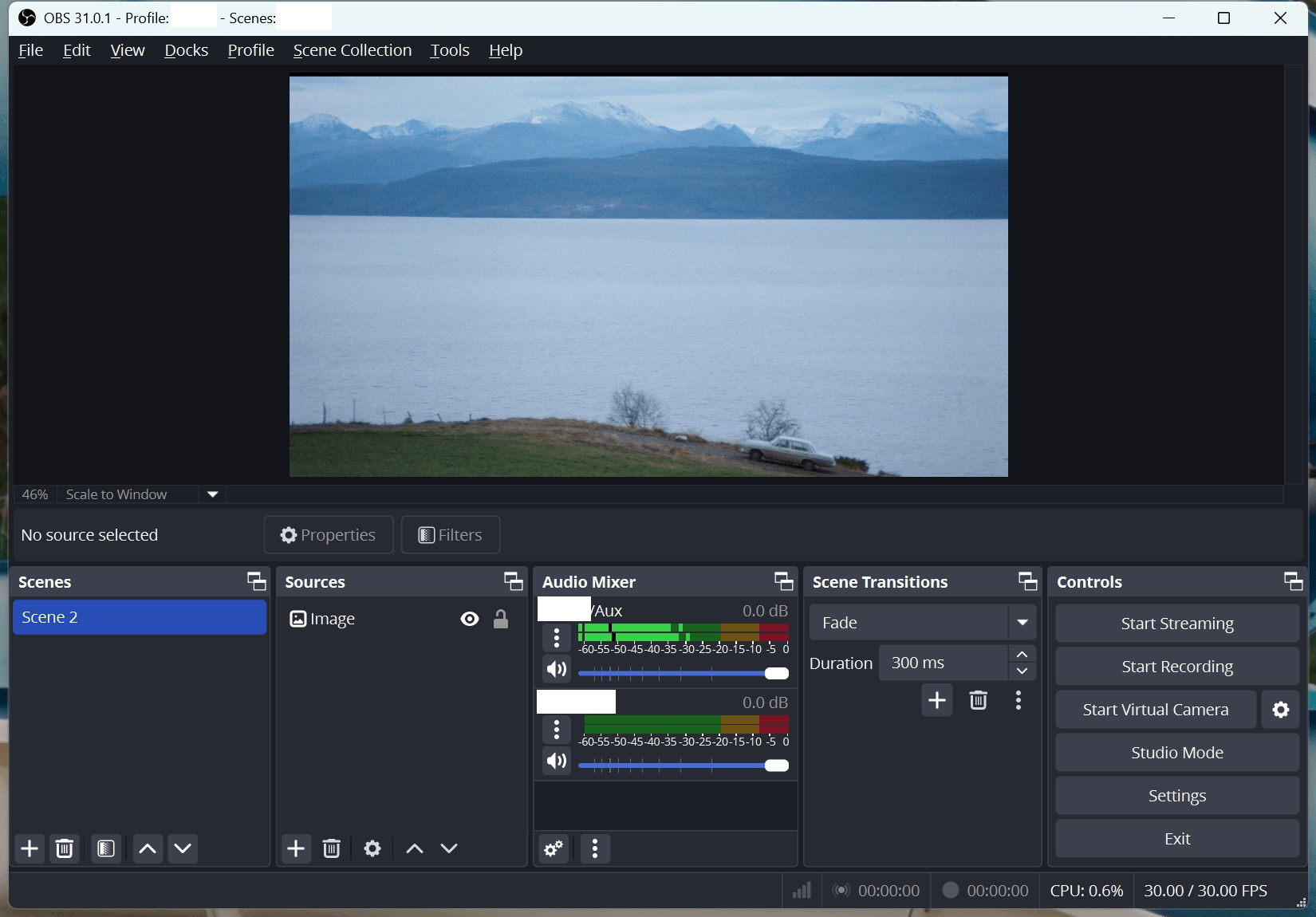
Key Features
- Advanced scene composition
- Multiple source inputs (window, display, webcam)
- Streaming integration: Direct streaming to multiple platforms like Twitch, YouTube, etc.
- Intuitive audio mixer
Pros
- Free and open-source
- Highly customizable
- No recording time limits
- Excellent for live-streaming
Cons
- Steep learning curve
- No cloud storage
- Need more technical expertise to set up
- Resource-intensive
- The workflow may be a bit slower
Rating
4.6 out of 5, based on 122 reviews on G2
Loom vs. OBS
Loom wins in ease of use and quick sharing capabilities, while OBS dominates in streaming and advanced recording features. OBS's unique strength lies in its open source and unlimited customization potential through plugins and scenes, making it superior for professional broadcasting.
3. Camtasia
If you use Loom to record raw footage for detailed software tutorials or e-learning courses that require extensive editing, then Camtasia is the industry-standard alternative. It combines a high-quality screen recorder with a full-featured, multi-track video editor specifically designed for refining screen recordings with annotations, callouts, cursor effects, and animations.
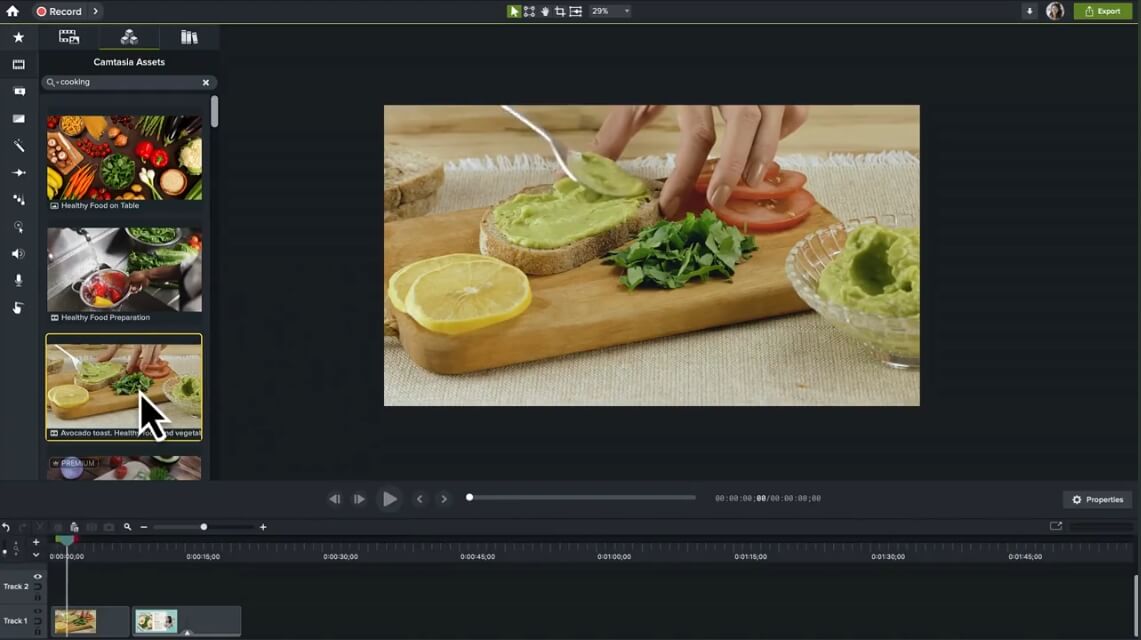
Key Features
- Advanced video editing tools, including multi-track timelines, graphics templates, and effects
- Content creation enhancement with display insertion, clickable links in videos, annotations, etc.
- Quick sharing, commenting, and reviewing
Pros
- Professional editing capabilities
- Rich template library
- Strong technical support
- Extensive tutorial resources
Cons
- High one-time cost
- Resource-intensive
- Steeper learning curve
- Limited collaboration features
Cost
- Camtasia Essentials costs $179.88/year
- Camtasia Create costs $249/year
Rating
4.6 out of 5, based on 1454 reviews on G2
Loom vs. Camtasia
Loom leads in quick recordings and team collaboration, while Camtasia dominates in comprehensive video editing. Camtasia's unique strength is its professional-grade editing suite with advanced features like motion graphics and interactive elements.
4. Tella
If you use Loom to create branded content, marketing videos, or polished presentations, then Tella is the perfect alternative. It empowers you with full creative control to design visually stunning videos, offering customizable layouts, beautiful backgrounds, and a suite of tools to make your presentations look unique and highly professional.

Key features
- Customizable Layouts & Backgrounds
- Slide Integration
- Clip-based Recording
- Dynamic Zoom Effects
- Shared Team Library
Pros
- Aesthetically Pleasing
- HighlyCustomizable
- Flexible Recording
Cons
- No Android or Windows App
- Steeper Learning Curve
- Fewer Integrations
Pricing
- 7-day free trial
- Pro Plan: $156/year
- Premium Plan: $228/year
Rating
3.5 out of 5 based on 7 reviews of Trustpilot
Loom vs. Tella
Loom prioritizes speed and simplicity for quick, asynchronous communication. Tella, in contrast, focuses on creative control and visual polish, enabling you to craft beautifully designed presentations and marketing videos.
5. ScreenPal (formerly Screencast-O-Matic)
If you use Loom to create educational content or corporate training materials, then ScreenPal (formerly Screencast-O-Matic) is a more comprehensive alternative. It is an all-in-one platform that combines screen recording with a powerful video editor, content hosting, and interactive features like quizzes, making it ideal for building and managing a structured library of instructional videos.
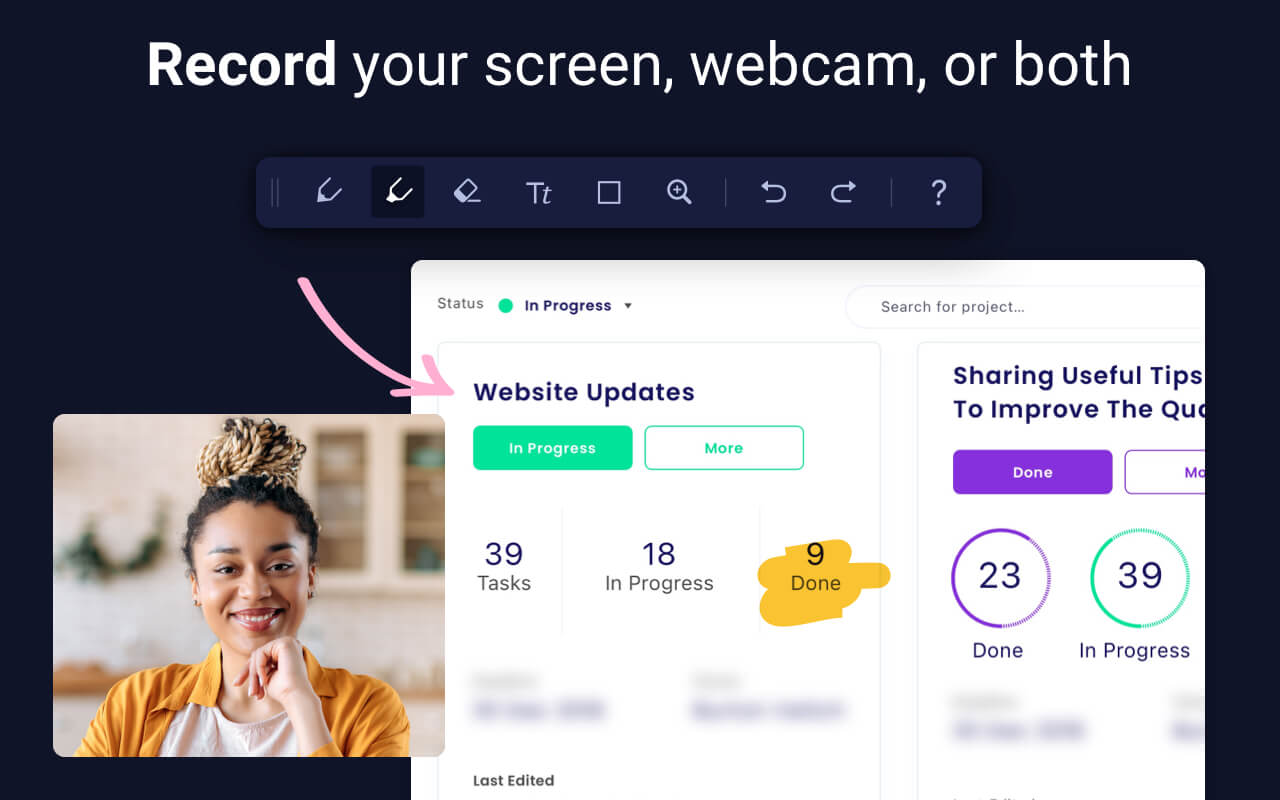
Key Features
- Quick recording startup
- Basic editing tools, including trimming, transitions, text overlay, etc.
- Cloud storage options with team workspace support
- Direct sharing capabilities
- Cross-platform with desktop, mobile, and Chrome extension
Pros
- User-friendly interface
- Affordable pricing
- Cross-platform support
- Good collaboration features
Cons
- Basic editing capabilities
- Storage limits on the free plan
- Some lag in the web version
Pricing
- Free for 15 recording limit and basic editing features
- Deluxe is $4/month for unlimited recording, full editing, speech-to-text, etc.
- Max is $10/month for all Deluxe features and rich AI functions
- Team business plan for all Max features and collaboration integrations
Rating
4.4 out of 5 based on 101 reviews of G2
Loom vs. ScreenPal
Loom offers better team collaboration features and viewer analytics, while ScreenPal provides more affordable pricing tiers and a simpler interface. ScreenPal's unique strength is its balance of features and affordability, making it more accessible for individual users and small teams.
In Summary
This detailed post shows how each Loom alternative serves different user needs, from basic recording to professional production. The choice often depends on specific requirements like editing depth, automation needs, link sharing, or streaming capabilities. Hope all the information above helps you to make visual creations practical and attractive.
